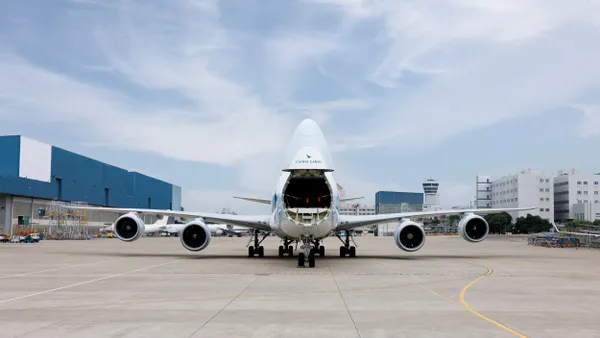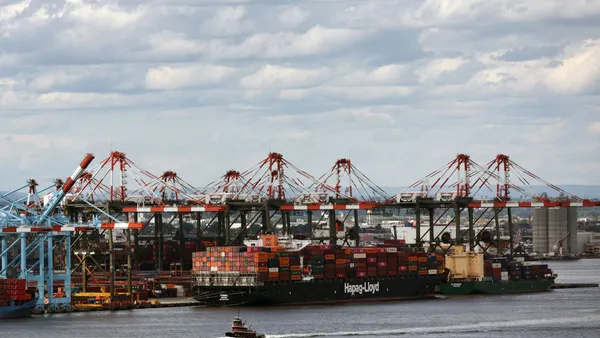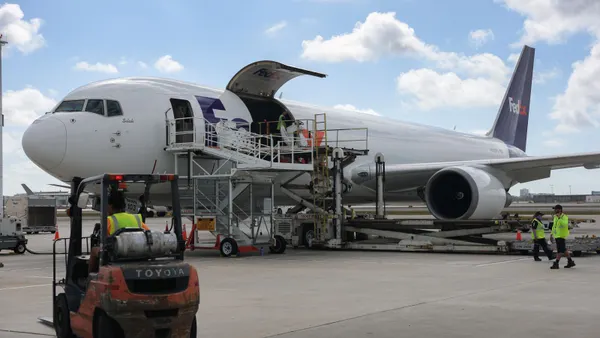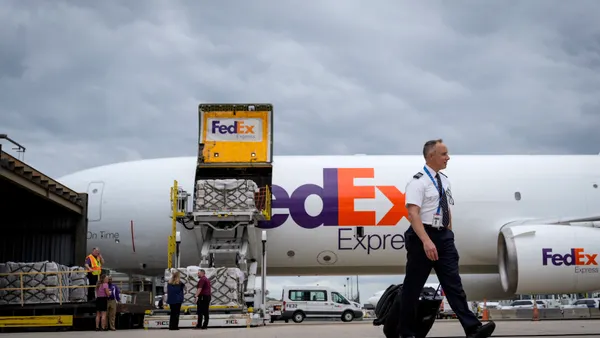Dive Brief:
- Kuehne + Nagel announced on Monday it will make all less-than-container load shipments carbon neutral by 2020, according to a press release.
- The move is part of the company's effort to "proactively address the CO2 footprint of the transportation services performed by its suppliers – airlines, shipping lines and haulage companies," leading to complete carbon neutrality by 2030.
- The company plans to achieve this through a "package" of efforts that, in addition to using carbon neutral fuels, include funding carbon offset projects, carbon-capture techniques that remove CO2 from the atmosphere and environmental awareness training for its employees.
Dive Insight:
The company's multi-pronged approach to reducing emissions starts with two proprietary measurement tools it has developed called the Global Seafreight Carbon Calculator and Seaexplorer. Both digital programs use aggregated cargo and route data to estimate the CO2 impact of a container or less-than-container shipment. In addition, Seaexplorer offers information on route and load optimization to help reduce inefficiencies that can contribute to higher emissions and energy consumption.
Kuehne + Nagel uses these tools to set benchmarks for its emissions reduction efforts, saying it supports Paris Agreement targets to keep annual global temperature rise below 1.5 degrees Celsius.
While the company's climate commitment lists myriad solutions from using renewable energy to reducing business travel in favor of videoconferencing, exact information on how it plans to use renewable energy, on what scale and to what extent it plans to improve load efficiency is not listed. However, it says the remainder of the carbon emissions produced after these measures have been put in place will be offset by purchasing carbon credits, thereby funding environmental preservation projects in Myanmar, New Zealand and other countries.
These projects, according to Kuehne + Nagel's website, focus primarily on ecosystem preservation and reforestation. By preventing damage to these environments, the firm says it offsets its own carbon emissions, using internationally accredited third-parties to verify the credits it purchases.
This approach is similar to one Google announced in August, in a blog post saying the company's shipments "to and from customers" would be carbon neutral by 2020. The tech giant said it would reduce the bulk of its emissions by switching from air freight to ocean freight where possible, which brought per-unit emissions down by 40% between 2017 and 2018. However, it would purchase carbon offsets for the remaining emissions to support a variety of sustainability efforts, and energy consumed by its existing facilities would be offset with renewable energy purchases.
Kuehne + Nagel and Google explain their carbon offset purchases as a means of supporting global sustainability efforts and renewable energy innovation due to the fact that it would be too difficult or impossible to avoid emissions completely.














